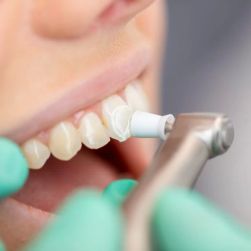As we age, maintaining oral health becomes increasingly important, often requiring procedures that address the natural wear and tear of teeth. Dental implants offer a widely recognized solution to replace missing teeth, providing not only aesthetic improvements but also functional benefits such as better chewing and speaking. However, for elderly individuals, the decision to undergo dental implant surgery involves careful consideration of various factors. In this article, we will explore whether elderly individuals can successfully receive dental implants, along with the risks and benefits associated with the procedure, drawing insights relevant to the American context.
Are Dental Implants Suitable for the Elderly?
When assessing the suitability of dental implants for elderly patients, age is not a strict barrier. Numerous studies, including those referenced by the American Academy of Implant Dentistry, have confirmed that age alone does not determine the success rate of dental implants. Instead, the condition of the patient's overall health and the quality of their jawbone are more critical indicators of a successful outcome. Elderly patients should undergo a comprehensive health evaluation and discuss any chronic conditions with their dentist at Dentistry Toothtruth before making a decision.
Benefits of Dental Implants for Seniors
There are several compelling benefits of dental implants for elderly individuals. Firstly, dental implants provide improved stability and functionality compared to traditional dentures, allowing patients to enjoy a broader range of foods without discomfort. This improvement in dietary habits can lead to better nutritional intake, crucial for seniors. Secondly, implants offer a natural look and feel, boosting the self-esteem and social confidence of elderly patients who may be self-conscious about missing teeth. Moreover, because they are anchored into the jawbone, implants help prevent the bone loss that typically follows tooth loss, thus preserving facial structure.
Potential Risks and Complications
Despite their advantages, dental implants are not without potential risks, especially for older adults. The primary concern for elderly patients undergoing implant procedures is the healing process, which may be slower due to age-related factors such as reduced bone density or compromised immune function. Furthermore, certain medications common among older adults, such as anticoagulants, may complicate the surgical process. Additionally, pre-existing medical conditions like diabetes or heart disease could increase the risk of complications. Therefore, it is essential to have an open discussion about these risks with your healthcare provider and to consider alternatives or additional pre-surgical assessments.
Case Studies and Success Stories
Many elderly individuals have successfully received dental implants, attesting to the procedure's viability in older age groups. For instance, a study published in the Journal of Oral Implantology observed success rates exceeding 90% in patients over the age of 65. These successful cases often involve meticulous planning and a personalized approach. Patients benefited from a collaborative effort between their primary care physicians and dental specialists, ensuring medical conditions were well-managed leading up to the surgery.
Conclusion and Recommendations
In conclusion, dental implants can be a highly effective solution for elderly individuals seeking to restore their oral health and quality of life. While there are associated risks, these can be mitigated with thorough medical evaluations and personalized care plans. We encourage seniors and their families to engage in informed discussions with their dental care professionals at Dentistry Toothtruth to determine the best course of action. Regular dental check-ups, maintaining good general health, and addressing any potential complications before they arise will also contribute to successful outcomes for elderly individuals considering dental implants.






